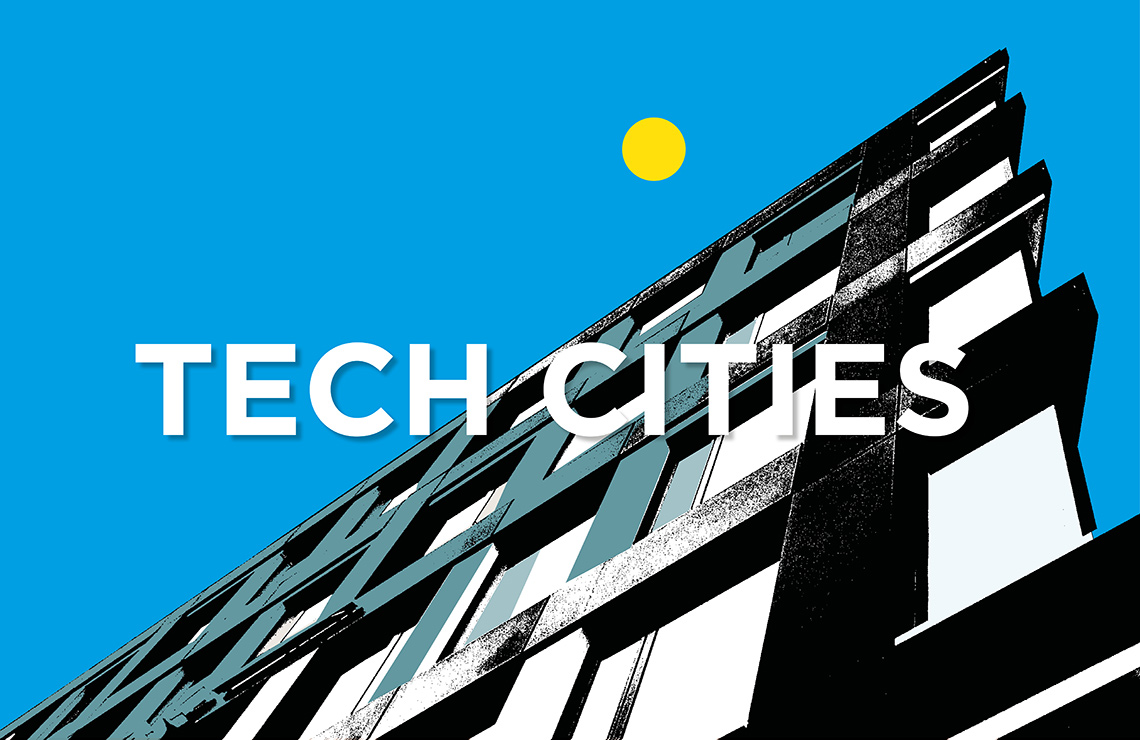In this edition of Tech Cities we focus on the leading cities in different sectors of tech, from Deep Tech to Life Sciences, from AgTech to MediaTech. As the fourth industrial revolution transforms business and industry, new tech sectors are driving growth, supporting demand for property in the cities that lead in them. Some cities offer depth and breadth and are home to many types of tech, others have specialised, applying technology to legacy industries or pioneering new ones.
Vibrant urban centres, Savills Tech Cities are places that people choose to live and work in. Big cities are back in vogue as the effect of the pandemic has eased, though smaller cities that offer more affordable living, easy access to green space and outdoor pursuits are also in high demand.
Skilled individuals are the lifeblood of tech, and Tech Cities are adept at attracting and retaining the best and brightest. They are also home to leading higher education institutions, the linkage between universities and tech industry a critical source of talent and new ideas.
Our rankings serve a number of purposes: they act as a guide of where to locate if you’re a tech business looking to recruit and retain the best tech talent; they can help inform your choice if you’re a mobile tech worker looking for the best place to further your lifestyle and career; or for governments looking to foster and develop your own tech industries, they summarise what makes a successful tech ecosystem.
A slowing global economy has put pressure on tech markets across the globe, impacting ‘big tech’ in particular. This must be seen in the context of the exceptional period of growth seen in the last few years, at a time when the world moved online and ultra-loose monetary policy fuelled company expansion. But tech today permeates everything, and tech niches such as HealthTech, FoodTech and ClimateTech are transforming our lives and tackling some of the world’s greatest challenges. It is the hubs for these dynamic sectors that we focus on here.
Savills Tech Cities global, combined ranking
Big, established tech hubs hosting a diversified tech base top the overall Savills Tech City ranking (see methodology), with New York, San Francisco and Silicon Valley taking the top three spots. These cities offer deep pools of talent, quality higher education institutions, large supporting business and tech ecosystems and attract high volumes of VC in multiple tech verticals.
The US and China continue to dominate the top of our rankings: US cities account for more than half of the top thirty. Top ranking San Francisco (1st) and Silicon Valley (3rd) cement the San Francisco Bay Area as the preeminent global tech hub, in spite of and cooling local real estate markets and competition from lower-cost tech centres. New York (2nd) benefits from access to a deep talent pool and the city’s reputation as a global centre of commerce.
Six Chinese cities feature in the top 30, led by Beijing (4th) and Shanghai (7th). In spite of tighter controls China put on its big tech companies, its major tech centres remain important, supported by a vast home market, established domestic tech ecosystems and continued global demand for its manufactured products.
Attracting by far the most VC in Europe across a wide range of tech sectors, London ranks 5th globally, ahead of Paris in 9th and Berlin in 19th.
A number of other smaller cities (by global standards) are present, punching above their weight on a global stage. They include Austin in 11th (population 960,000), Raleigh-Durham in 21st (population 755,000), and Denver in 23rd (population 710,000). These cities offer a quality business and education environment, combined with city living on a smaller footprint, benefitting as people sought a better quality of life in the wake of the pandemic. That allows easier access to amenities and a better work/life balance for residents, but with all the ‘buzz’ of larger urban centres.
Savills Tech Cities 2023
Combined ranking, top 30
Source: Savills Research
Methodology:
Our 2023 Tech Cities ranking measure a city’s business environment, tech environment, city buzz & wellness, talent pool, and its strength and depth across different tech sub sectors:
*for each of the 11 Tech Sub sectors (AgTech & FoodTech, CleanTech & ClimateTech, Deep Tech, E-Commerce, FinTech, Industrial Tech, Life Sciences & HealthTech, MediaTech, MobilityTech, Software, SpaceTech). These are aggregated to form our overarching Tech Cities index.
Established, Challenger and Rising Tech Cities
By comparing the depth and breadth of a city’s tech base with its quality as a place to live and grow a business in, three key city groups emerge:
- Established: these are big, global cities that attract the lion’s share of global VC across a wide range of tech sub sectors. Examples: New York, Beijing, London.
- Challenger: important global centres that attract a wide range of tech, but have specialisms in certain tech sectors. Examples: Boston, Hangzhou, Singapore.
- Rising: secondary global centres usually specialising in one tech sector. Many offer cost advantages over the established or challenger cities. Examples: Atlanta, Oslo, Bristol, Tallinn.
Established, challenger and rising Tech Cities
Source: Savills Research



